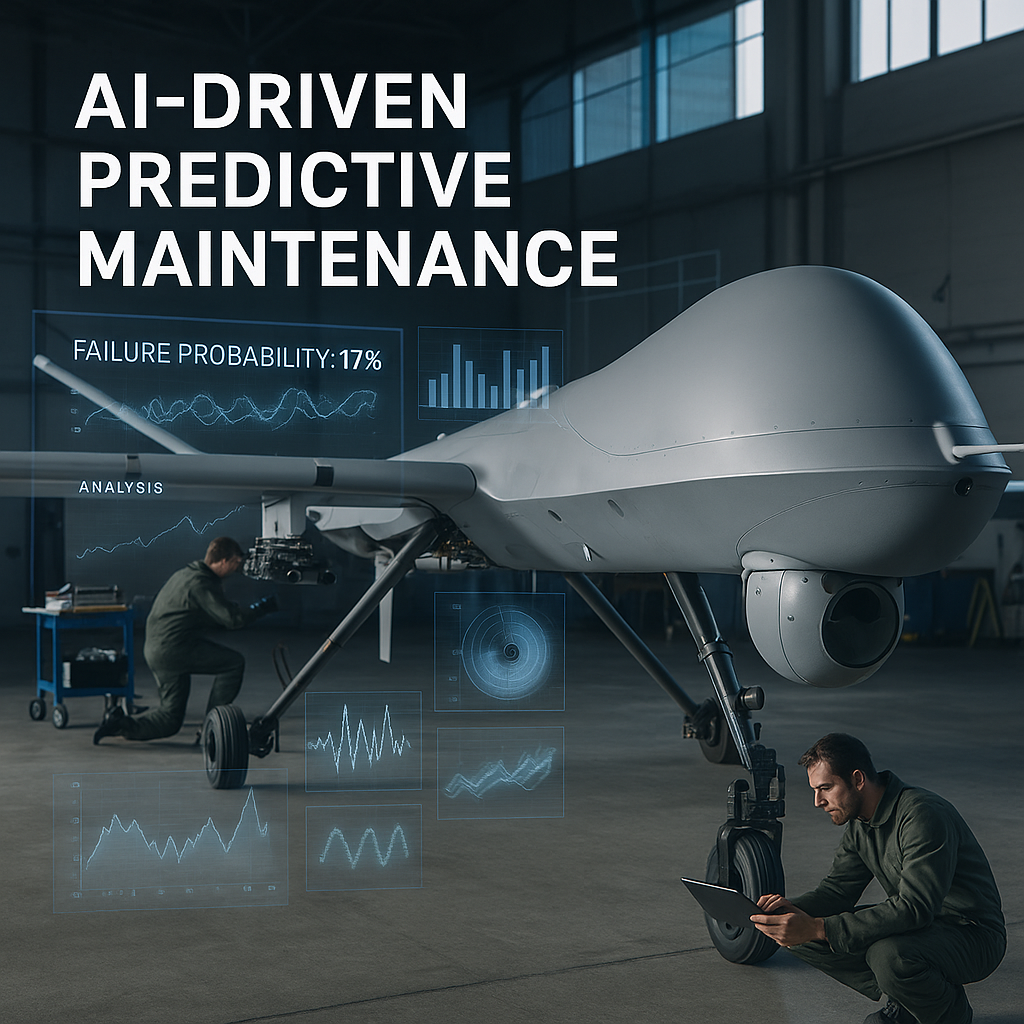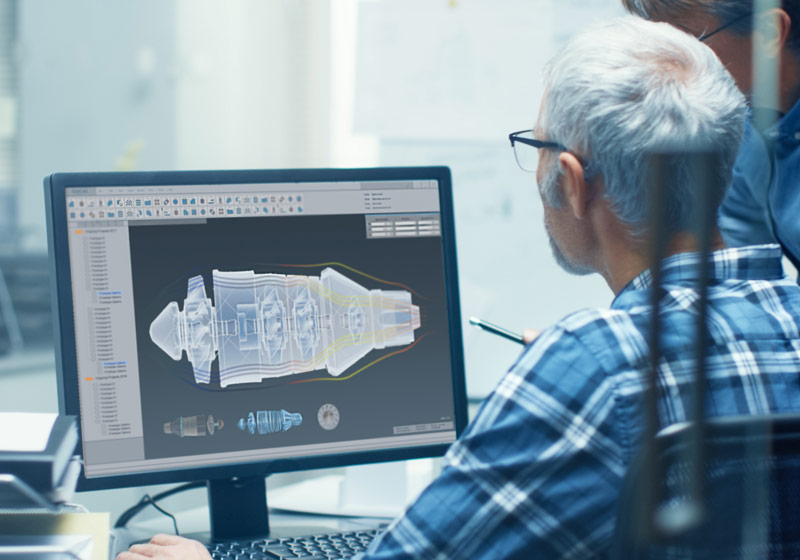📌 The Challenge: UAV Maintenance in a High-Tempo Defense World
Military UAVs are among the most sophisticated aerospace assets in service, supporting critical missions where readiness is non-negotiable. Yet, traditional scheduled maintenance leaves operators vulnerable to:
35% of downtime coming from unscheduled maintenance events
$1.2B in excess spare parts inventory across defense operations
Delays that compromise mission objectives and operational tempo
The solution is AI-driven predictive maintenance—turning sensor data into actionable foresight so failures are prevented before they happen.
🧠 How AI Predictive Maintenance Works for UAVs
The Technology Core
Predictive AI leverages machine learning algorithms to process UAV operational data and spot early failure indicators—before standard thresholds trigger maintenance alerts.
Military UAV data sources include:
Engine performance (temperature, vibration, fuel consumption)
Avionics health (processor loads, communications integrity)
Structural monitoring (stress, strain, fatigue levels)
Environmental context (altitude, G-forces, humidity, temperature)
Key Differences from Commercial Aviation
| Challenge | Military UAV Factor | Why It Matters |
|---|---|---|
| Mission Criticality | Mission abortion risks | No tolerance for scheduled downtime in combat/ISR |
| Harsh Environments | Desert, Arctic, high-altitude | Accelerated wear patterns |
| Security | ITAR & DoD compliance | Requires secure, on-prem or approved environments |
| Fleet Diversity | Multiple UAV models | Model-specific predictive algorithms needed |
🎯 Pain Points in Current UAV Maintenance
1. Unscheduled Maintenance Events
Mission abortion costs: ~$150K/incident
48–72 hours to reschedule follow-on missions
Emergency part procurement = 300–500% higher cost
2. Inventory Management Inefficiencies
$400K–$800K in excess parts per squadron
25% parts obsolete before use
Stock-outs ground UAVs for ~14 days waiting on parts
3. Workforce Strain
Technician training: $75K+ per certification
Loss of experienced staff to civilian aerospace
Inconsistent workload → underuse or burnout
🔧 The Netray AI Implementation Framework
Phase 1: Data Infrastructure & Security
Edge computing on UAVs for real-time analysis
FIPS 140-2 Level 3 encryption
Air-gapped secure analysis environments
ITAR-compliant handling of mission data
Seamless integration with systems like ALIS, IMDS, and contractor platforms
Phase 2: Algorithm Development
Failure mode-specific models for propulsion, avionics, structures, sensors
Mission-profile adaptation (ISR vs combat vs training)
Phase 3: Operational Integration
Condition-based scheduling instead of fixed intervals
AI-driven dynamic parts ordering
Technician prioritization based on probability scores
Prediction accuracy target: >85% with false positives <10%
📈 Results: Proven Metrics in Military UAV Fleets
| KPI | Before AI | After AI | Improvement |
|---|---|---|---|
| Unscheduled Downtime | — | -45% | ✔ |
| Spare Parts Inventory | — | -30% | ✔ |
| Annual Squadron Savings | — | $2.8M | ✔ |
| Mission-Capable Rate | Baseline | +15–25% | ✔ |
| MTBF Extension | — | +30–40% propulsion, +25–35% avionics, +20–30% structures | ✔ |
🔮 Strategic Advantages for Defense
Enhanced Mission Readiness: UAVs available when needed
Cost Optimization: Lower maintenance spend & inventory costs
Technological Edge: First-mover advantage in defense AI adoption
Reduced Risk: Fewer catastrophic failures in mission
🌐 Future Trends in UAV Predictive Maintenance
Digital Twins for whole-platform simulation
Autonomous Maintenance Robots guided by AI
Blockchain Parts Authentication for anti-counterfeit assurance
Quantum-Enhanced Prediction for complex maintenance optimization
📩 Ready to Deploy AI Predictive Maintenance?
Netray’s defense-grade AI methodology blends aerospace engineering expertise with mission-ready security compliance to ensure results.
👉 Contact Netray’s Defense Solutions Team for a comprehensive UAV maintenance assessment and tailored implementation plan.



